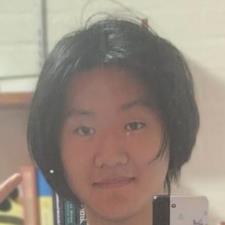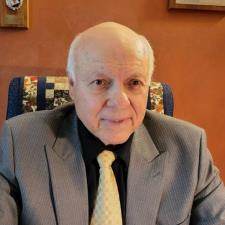Jen Butler has been pricing Speed-Pass train fares for a group trip to New York. Three adults and four children must pay $86.
Two adults and three children must pay $61.
Find the price of the adult's ticket and the price of a child's ticket.
Let PA = price of an adult ticket
NA = number of adults
PC = price of a child ticket
NC = number of children
and CT = total cost
The total cost is just a "weighted" sum of the adult cost plus the child cost:
NA * PA + NC * PC = CT
For the 1st case, we substitute the numbers given
3 * PA + 4 *PC = 86 (1)
Similarly, for the second case
2 * PA + 3 * PC = 61 (2)
Here we simultaneously have 2 equations in 2 unknowns, PA and PC (a classic situation). It is solvable by substitution.
First we rearrange equation #2 to solve for PA:
2*PA = 61 - 3*PC
PA = (61 - 3*PC) / 2
Now "substitute" this expression into equation #1
3 * (61 - 3*PC) / 2 + 4*PC = 86
3*61/2 - 3*3*PC / 2 + 4*PC = 86
3*61/2 + (-9/2 + 4)*PC = 86
-0.5*PC = 86 - 3*61/2 = 86 - 91.5 = -5.5
PC = -5.5 / -0.5 = 11
Now we can put the value of PC again into equation #1 and solve for PA
3 * PA + 4 * PC = 3 * PA + 4 * 11 = 86
3 * PA = 86 - 44 = 42
PA = 42 / 3 = 14
To check if you are right, substitute the values for PA & PC into equation #2
2 * PA + 3 * PC = 61
2 * 14 + 3 * 11 = 61
28 + 33 = 61
61 = 61
First we solved the equ #2 for PA and substituted into equ #1 to get PC. Try doing it in reverse.
Try solving equ #1 for PC and substituted into equ #1 to get PA. It won't matter, You get the same answers.
That's the beauty of solving "simultaneous equations." ........... :-)







